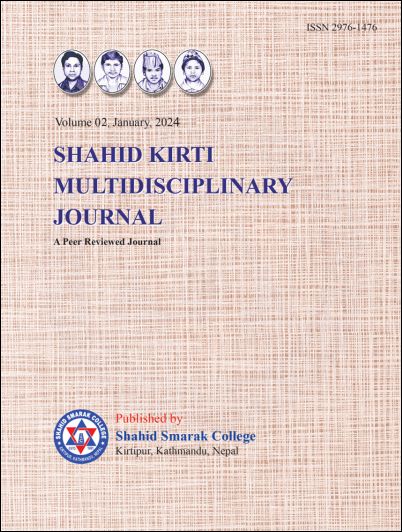Religious Leaders' Perspectives Towards LGBTIQ in Nepal
DOI:
https://doi.org/10.3126/skmj.v2i2.62507Keywords:
LGBTIQ, perception, religious leaders, holy texts, SOGIESCAbstract
Lesbian, Gay, Bisexual, Trans gender, Intersex, Queer plus is an emerging social issue in Nepal. Still Nepalese society has hardly accepted the issue yet. There might be various reasons; this concept has not earned priority in current social structure. Social structures are guided by the religious belief and practice. Religious leaders’ hold the governing positions to construct the perception of society. For the reason, it aims to explore the perception of religious leaders towards LGBTIQ. The religious leaders from Hindus (Sanatana Dharma), Buddhist, Islam and Christian around Kathmandu valley were selected as the respondents of the research. Qualitative data were collected through in-depth interview. In their own worshipping places through field visit. Respondents felt uneasy on the topic though they preferred to explain the good features of the religion rather than the issue. Hindus claimed that they respect third gender as the grace of the god, though they believe that it is against the rule and nature constructed by the god. Similarly, the devotees of Buddhism take oath to follow the ‘Eight-Fold-Path’ as their guideline which consist the five precepts. The Christians consider sexuality to be a divine gift, though it ignores the sexual orientation of LGBTIQ and there are significant disagreements among the Christian community in Nepal. Islamic faith is controlled by holy Quran, which does not give permission for unnatural sex. Though, in the holy text, the story of Luth is mentioned to aware the devotees from the sinful act performed by LGBTIQ. Though, the religious leader accepted the biological features of the LGBTIQ but they denied the sexual activities they perform or express. They perceive it as a sinful act of previous life. Moreover, they believe that the lesbian, gay issues were mostly influenced by western culture and the advancement of the modern technologies. Thus, the religion guided structure of Nepal left behind to address the LGBTIQ to struggle for decades to achieve the rights in the country.




